Management
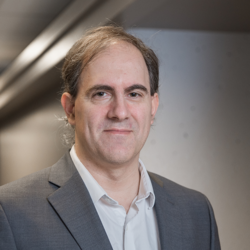
Santiago Hidalgo
Director
Santiago Hidalgo is an assistant professor in the Department of Art History, Film, and Audiovisual Media at the University of Montreal. He has been director of the Laboratoire CinéMédias since 2018 and is the director of the cinEXmedia partnership (SSHRC, 2022-2029), which focuses on the societal, educational, therapeutic, and inclusive dimensions of the cinematic experience. Founder and editor of the journal Écrans croisés (since 2025), he is also co-editor of the collections Cinéma et technologie (Presses de l'Université de Montréal) and Cinema and Technology (Amsterdam University Press). His research, conducted at the intersection of film studies, neuroscience, aging, and media accessibility, is part of several intersectoral groups. He is a regular researcher at the Centre de recherche de l’Institut universitaire de gériatrie de Montréal (CRIUGM), at the CIUSSS du Nord-de-l’Île-de-Montréal, and a member of the Réseau thématique sur le sommeil (FRQS) and the Centre d’études avancées en médecine du sommeil. He is also co-founder of Formation en médias inclusifs (Training in Inclusive Media)—the first of its kind in French in Canada—developed at the Laboratoire CinéMédias in collaboration with the PRAXIS Professional Development Center to train professionals in audio description, video description, and adapted subtitling.
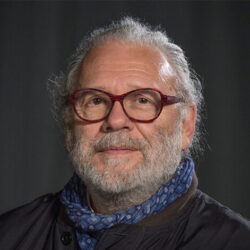
André Gaudreault
Founder
A well-known historian of early cinema and a pioneer in film narratology, in his current research André Gaudreault is especially interested in the advent of editing, in the phenomenon of opera broadcasts in movie theatres, in technological innovations seen from an “archaeological” perspective and in the impact of the digital on the media universe. He is one of the five founding members of the International Society for the Study of Early Cinema (Domitor), which he led, as the first elected president, from 1985 to 1994. In 1992 he founded, and has led since, the Groupe de recherche sur l’avènement et la formation des institutions cinématographique et scénique (GRAFICS); from 1997 to 2005 he was also head of another interdisciplinary and inter-university research infrastructure based at the Université de Montréal, the Centre for Research on Intermediality (CRI), of which he was one of the four founders. In 2010, at the Université de Montréal, he founded with the filmmaker and producer Denis Héroux the Observatoire du cinéma au Québec (OCQ), a unique scholarly crossroads whose goal is to promote exchanges between film practitioners and theorists. He is also the director and one of the founders of the International Research Partnership on Cinema Techniques and Technologies (TECHNÈS), which since 2012 has brought together eighteen partners and forty-five researchers from various countries whose goal is to reintroduce the technical element into scholarly thinking about cinema in order to better understand technological change and its interactions with film theory, aesthetics and practices. In 2016, he founded the Laboratoire CinéMédias, an infrastructure attached to the Canada Research Chair in Film and Media Studies, which encompasses, in addition to TECHNÈS, GRAFICS and the OCQ, the Programme de recherche sur l’archéologie et la généalogie du montage/editing (PRAGM/e).
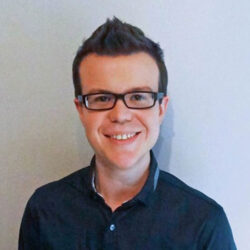
Thomas Carrier-Lafleur
Assistant Director and Research Coordinator
A post-doctoral researcher and part-time instructor at the Université de Montréal, Thomas Carrier-Lafleur is Research Coordinator at the Laboratoire CinéMédias. In 2019, he published the essay Il s’est écarté: Enquête sur la mort de François Paradis (Nota bene, with David Bélanger) and co-edited the anthology Impression, projection: une histoire médiatique entre cinéma et journalisme (Presses de l’Université Laval, with Richard Bégin and Mélodie Simard-Houde). He is also the author of L’oeil cinématographique de Proust (Classiques Garnier, 2016) and Une philosophie du “temps à l’état pur”: l’autofiction chez Proust et Jutra (Vrin/Presses de l’Université Laval, 2010). His work on intermedia focuses on literature in France and Quebec and on Quebec cinema.
Administration
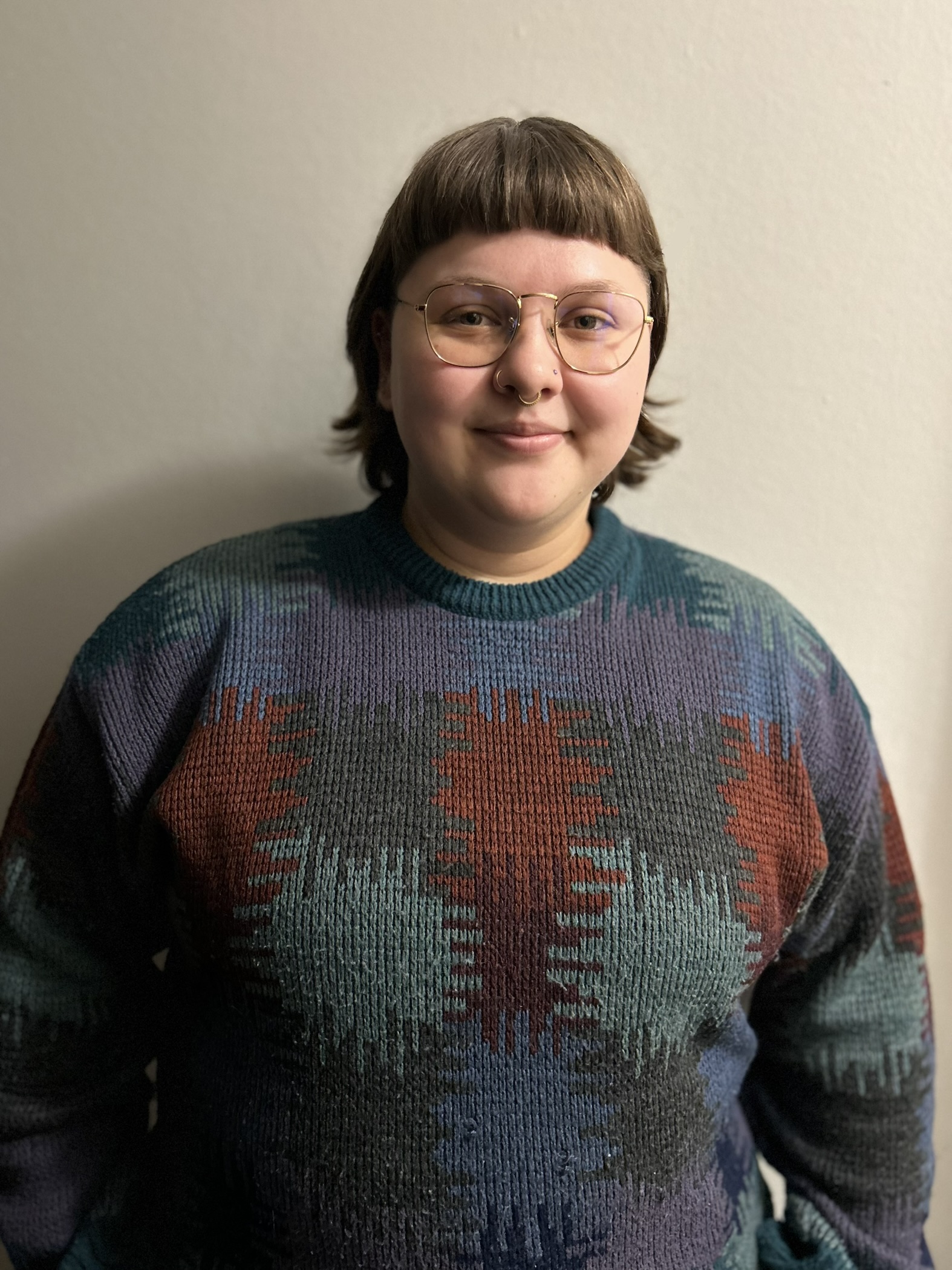
Rosalie Carignan
Audiovisual Production Coordinator and Coordinator of the Laboratoire CinéMédias
Head of audiovisual production and coordinator at the Laboratoire CinéMédias and the Observatoire du cinéma au Québec, Rosalie Carignan holds a master's degree in cinema from the Université de Montréal. Their work explore issues of representation and social justice in cinema from a feminist perspective. Rosalie is particularly interested in how cinematographic works can be a vehicle of expression by and for marginalized groups.
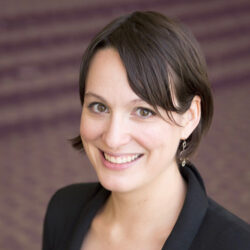
Zoey Cochran
Co-leader of the "Convergence through rhythm" theme of the cinEXmedia partnership
Bio to come
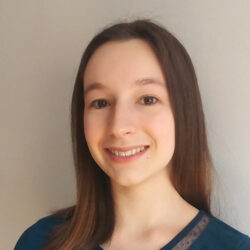
Tara Karmous
Coordination Agent of the Canada Research Chair in Film and Media Studies
After completing a master's degree in film research and creation under the direction of Olivier Asselin, Tara Karmous became the coordinating agent of the Research Chair in Film and Media Studies. Her studies focused on the use of geolocation and augmented reality in an activist perspective. As part of the Lab_Artenso, she continues her reflection with the creation of a prototype entitled La fin des paillassons, an augmented reality project inviting to revise the patriarchal discourse in art history. Since 2021, Tara has also been a research assistant on the OpéRA de Poche project, which aims to create operas for augmented reality and virtual reality to document the research-creation process.
Communications
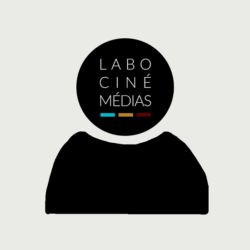
Marnie Mariscalchi
Publications Manager
Marnie Mariscalchi is a research advisor at the Université de Montréal and, since 2019, publications manager at Laboratoire CinéMédias. She was successively distribution coordinator, editorial secretary, then managing editor of the film studies journal Cinémas, for which she has worked from 2007 to 2024. At the same time, she collaborated on several research projects, mainly within the framework of GRAFICS, as a research assistant, editorial assistant and coordination assistant. She studied cinema and art history at the Université de Montréal.
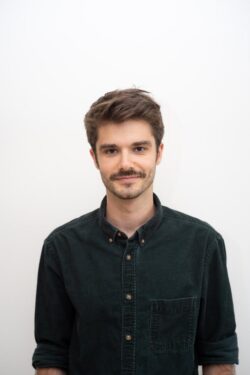
Olivier Du Ruisseau
Communications manager for the cinEXmedia partnership
Olivier Du Ruisseau holds a Bachelor of Fine Arts (BFA) with a double major in Art History & Film Studies and Journalism from Concordia University. He works in both the media and the cultural milieu, while completing his Master's degree in Film Studies at Université de Montréal under the direction of André Habib. Reporter, arts journalist and film and visual arts critic, he works for the daily newspaper Le Devoir and contributes to Médiafilm, among others. He has also held a number of positions at various film festivals, including programmer at the Festival International du Film sur l'Art (FIFA), and editor for the Festival du nouveau cinéma. He also works at the Cinéma sous les étoiles festival, and is a member of the FIFA pre-selection committee. His recent research focuses on the contribution of festivals to critical and academic discourse on québécois cinema.
Technical Support and Audiovisual Production
Research Professionals
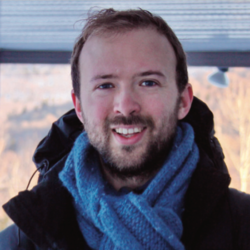
Rémy Besson
TECHNÈS Scholarly Coordinator
A research professional and Scholarly Coordinator of the TECHNÈS International Research Partnership, Rémy Besson holds a doctorate from the EHESS (Paris), supervised by C. Delage, on the narrative form of the Claude Lanzmann film Shoah. He has worked as a post-doctoral intern at the Centre for Intermedial Research in Arts, Literatures and Technologies (CRIalt, Montreal, 2012-14), where he was scholarly coordinator of the international project Archiver à l’époque du numérique, and then at LLA-CREATIS (Toulouse II, 2014-15), where he continued his studies on intermediality. A recognised specialist on the relations between history, the humanities, digital culture and cinema, he is also a part-time university instructor. A list of his publications is available online: http://remybesson.blogspot.ca/
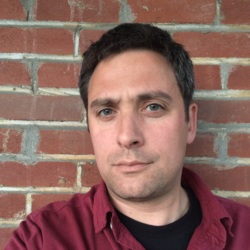
Pierre Chemartin
Research professional
Pierre Chemartin is a researcher, film critic and part-time university instructor in cinema studies. His work focuses on the graphic novel and animated cinema.

Alex Delagrave
Project Manager, Digital Collections
Alex Delagrave holds degrees in cinema studies (Concordia University) and information sciences (Université de Montréal). His work is oriented towards audiovisual archives, with a pronounced interest in issues around dissemination. At the Laboratoire, he is involved in research and valorisation projects which call on his fields of expertise: managing digital collections, designing metadata structures, document handling and analysis, and digital publishing. He is involved in particular in the creation of TECHNÈS’ digital encyclopaedia and is working on a project of video annotation of filmed interviews. He also contributes to organising virtual conferences and works as a programmer and projectionist and leads creative workshops for several cinema organisations and groups.
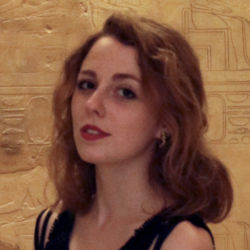
Alice Guilbert
Research professional
Straddling Canada and France, Alice Guilbert studied art history and archaeology in Paris at Université Panthéon-Sorbonne before returning to Montreal to undertake a bachelor’s degree in cinema at the Université de Montréal. She joined the Laboratoire CinéMédias in 2019 as a research assistant.
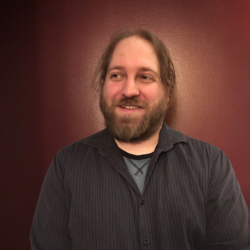
Louis-Philippe Hamel
Research professional
A doctoral student in the Département d’études cinématographiques at the Université de Montréal since 2018, Louis-Philippe Hamel is preparing a dissertation on the stylistic specificity of science fiction in an age when digital special effects have become standard practice. His work is being supervised by Richard Bégin, who had also supervised his master’s thesis, which examined the influence of the concept “cool” on the crime film genre in the 1990s. His current research focuses on digital cinema, visual (and special) effects and science fiction—and on peripheral issues, which he explores in particular by way of conference papers such as that on the recognition and organization of work in the field of visual effects, which he presented in 2019 at the TECHNÈS conference “Gestes singuliers, gestes collectifs: histoire et cinéma en pratiques.”
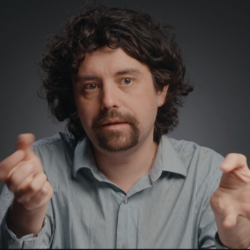
Simon Laperrière
Research professional
Simon Laperrière is a doctoral student in cinema studies under the supervision of Richard Bégin. His current research focuses on fan theories, popular culture and over-interpretation. With Eric Falardeau, he co-edited the anthology Bleu nuit: Histoire d’une cinéphilie nocturne (Somme toute, 2014). In 2018, he published Series of Dreams: Bob Dylan et le cinéma with Éditions Rouge Profond. A contributor to the audiovisual project Zoom Out, he has also written a variety of articles for Hors champ, Spirale and 24 images, and participates regularly on the broadcast Plus on est fous, plus on lit (Ici Première). With Simon Lacroix, he co-directs the series of oddball screenings Les nuits de la 4e dimension at the Cinéma du Parc.

Caroline Martin
Researcher, co-manager of the Inclusive Media Training
Caroline Martin has taught literature and film for over 20 years at the Université de Montréal and the Université du Québec en Abitibi-Témiscamingue. Her work focuses on film education, reception among young audiences and audio description. Recently, she participated in the Inclusive Media Training project at the Université de Montréal, both as a content co-developer and as a teacher. She is co-editor of the special issue of Nouvelles Vues entitled “Éducation cinématographique: trajectoires France-Québec”. She is also the principal researcher and author of an article on the CINÉPROF research project, “L'enseignement du cinéma dans les écoles secondaires québécoises : portrait d'un curriculum enseigné inspiré des arts plastiques et de la littérature”, in the Revue des sciences de l'éducation (forthcoming). She is also a collaborator of the cinEXmedia partnership.
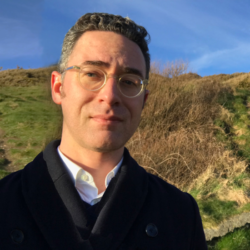
Louis Pelletier
Research professional
Louis Pelletier holds a doctoral degree in communication from Concordia University, is a research professional and a part-time instructor at the Université de Montréal, where he also completed a postdoctoral research project funded by the Social Sciences and Humanities Research Council of Canada on the earliest experiences in the production of fiction films in Quebec. He is also researcher in residence at the Cinémathèque québécoise, scholarly coordinator of the Canadian Educational, Sponsored and Industrial Film Project at Concordia University and co-director of Nouvelles vues. He has published on silent cinema, industrial cinema, amateur cinema, film exhibition, the technological history of cinema and avant-garde cinema in Film History, 1895, The Moving Image, The Journal of Film Preservation, the Canadian Journal of Film Studies and Found Footage. He is currently finishing the manuscript of a book on film distribution and exhibition in Montreal from 1912 to 1952.
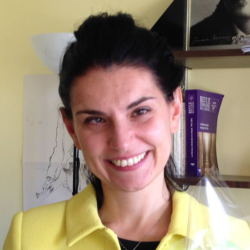
Claudia Polledri
Research professional
A post-doctoral researcher and part-time instructor in the Département d’histoire de l’art et d’études cinématographiques (UdeM), Claudia Polledri holds a doctoral degree in comparative literature from the Université de Montréal which examines photographic depictions of Beirut (1982-2011) and the relations between photography and history. She was guest researcher at LLA-CRÉATIS (2016) and was scholarly coordinator at CRIalt (Centre for Intermedial Research in Arts, Literatures and Technologies) from 2015 to 2018. Her research interests include cinema and photography in the Maghreb and Middle East. She curated the photographic exhibition Iran: poésies visuelles, presented during the Rencontres internationales de la photographie en Gaspésie (2019).
Research Assistants

Lisa Andrée Mélinand
Doctoral student
Lisa Andrée Mélinand is a doctoral student in film studies at the University of Montreal, under the supervision of Santiago Hidalgo. Her research-creation-action project examines the conditions for accessible therapeutic cinema, combining theoretical analysis and practical experimentation through StreamAccess, an inclusive broadcasting platform. She designs participatory tools, such as the Situated Experience Sheet and the Therapeutic Film Criteria Sheet, which document and co-construct the conditions of accessibility and filmic habitability. Her work focuses more broadly on accessibility and inclusivity in cinema and media, taking into account experiences of disability, race, and LGBTQIA2S+ diversity.
A member of the Laboratoire CinéMédias (UdeM) and Labdoc (UQAM) and co-head of the cinEXmedia student committee, she combines academic research, community engagement, and media innovation, with a focus on creating collaborative and inclusive tools. She is also a guest commentator on the university radio station Choq.ca (UQAM), where she shares her thoughts on cinema and society in a public forum.
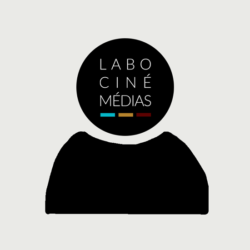
Tanzia Mobarak
Doctoral student
Bio à venir.

William Pedneault-Pouliot
Master's student
William Pedneault-Pouliot completed a bachelor’s degree in history and a certificate in art history in 2022 at Laval University, in Quebec City. He is currently working on his master’s degree at Montreal University in the International Master in Cinema Studies program, under the supervision of Prof. André Gaudreault. He is interested in cinema history from an interdisciplinary perspective, and more particularly in the links between cinema and the arts. His thesis will focus on the role played by the artists and writers of the avant-garde in the conceptualisation of cinema montage in France in the 1910s and 1920s. He is a research assistant at Laboratoire CinéMédias since 2023.
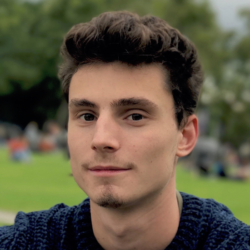
Thomas Rapenne
Audiovisual Production Assistant
Thomas Rapenne has been a master’s student in cinema studies at the Université de Montréal since September 2018, working under the supervision of André Gaudreault. His research and creations focus on images of graphic interfaces (mainly computers and smart phones) in cinema. He is in charge of post-production for the International Research Partnership TECHNÈS and holds a bachelor’s degree in the performing arts, with a specialisation in images, from Université Lyon 2 (France).
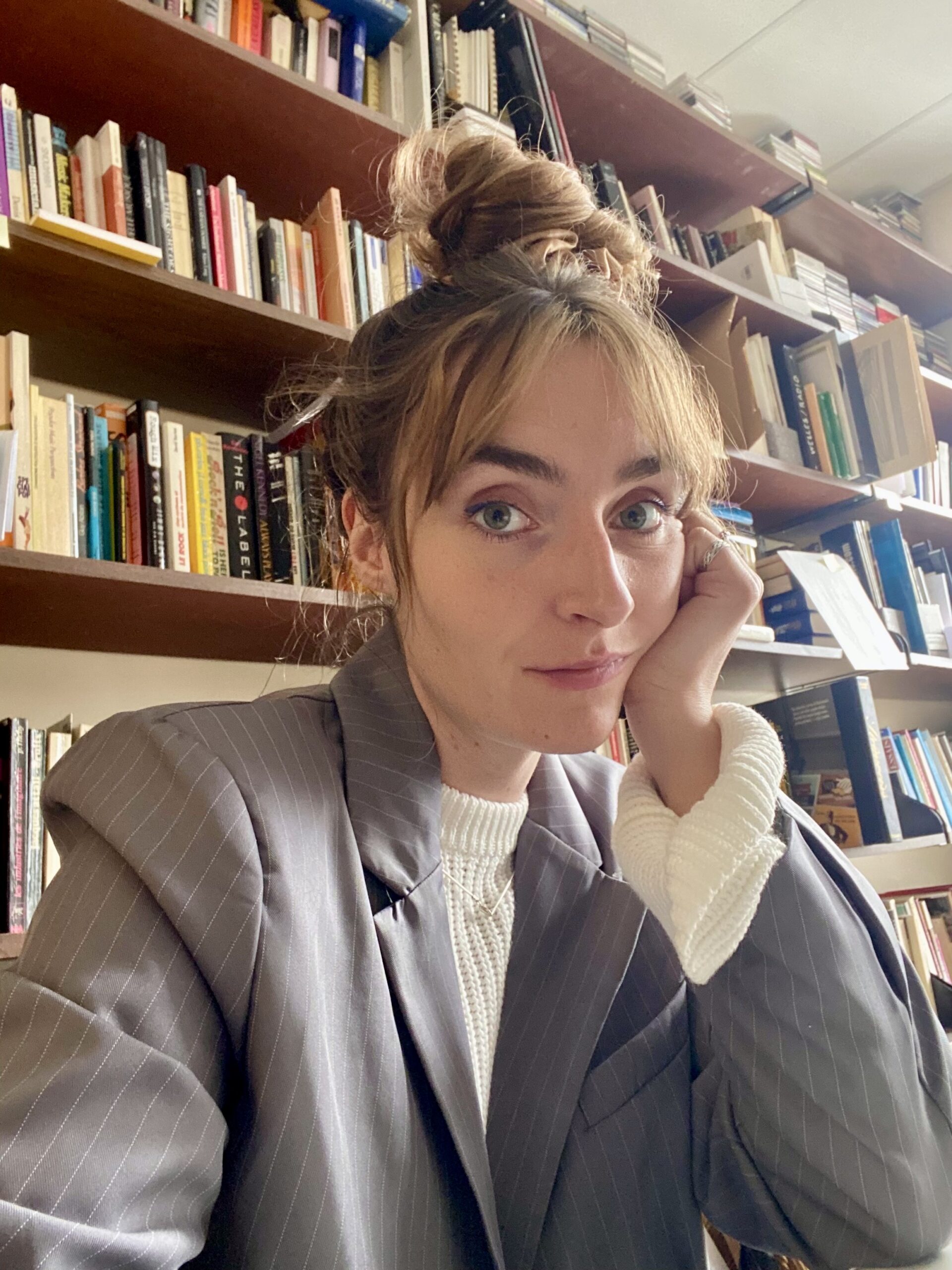
Pauline Sarrazy
Doctoral student
Pauline Sarrazy is a doctoral student in film studies and a lecturer at the University of Montreal. Funded by the Fonds de Recherche du Québec, her thesis focuses on the fruitful intersection between screenwriting and poetry. Her latest publications (Post-scriptum, Intermédialités/Intermediality) and her recent integration into the Laboratoire CinéMédias are part of an intermedial and genetic perspective that seeks to promote screenwriting in order to study the poetry of its stage directions as a novel tool for the production of future films, both in terms of their aesthetic expressiveness and their sensitive expression.

Romina-Soledad Romay
Doctoral student
Romina S. Romay is a composer, conductor and pianist of Argentinean origin, involved in creative work linked to new technologies, and frequently addressing themes relating to nature, the living and ecology. Initially trained as a pianist, she went on to study music composition at the Universidad Nacional de las Artes in Buenos Aires, Argentina. She obtained an international master's degree in contemporary music composition and performance at the Conservatoire National de Musique et de Danse de Lyon, with residencies in Estonia, Sweden and Germany, and then completed a doctorate in metadata-based microtonal music composition at the Université Côte d'Azur in Nice, France. As a research engineer for XR²C² (Extended Reality Research and Creative Center), she contributes to the realization of artistic residencies, study days and research projects in relation to VR, AR and MR applications.
